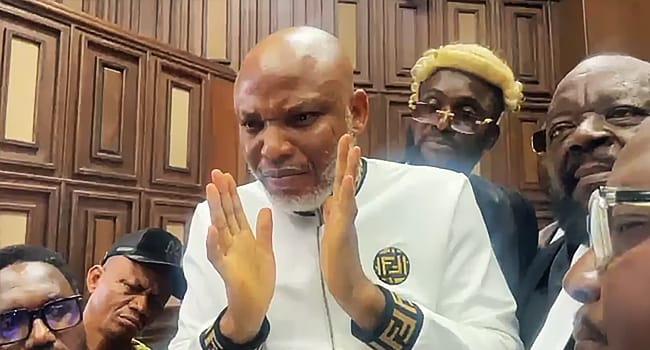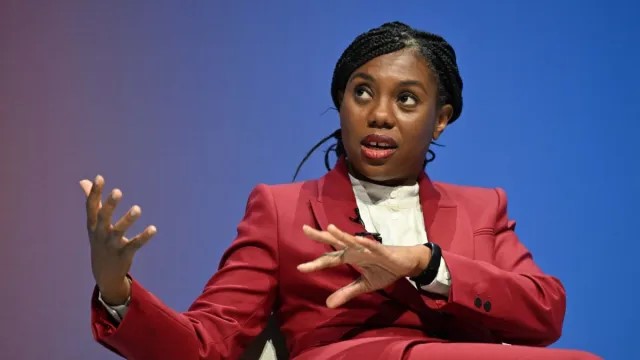Nigeria’s political elite continue to seek medical care in expensive foreign hospitals — even as millions of citizens die from preventable illnesses in underfunded, understaffed facilities at home. Despite rising nominal health budgets, allocations remain far below the 15% Abuja Declaration target, and even flagship centres like the Aso Rock Clinic have faced scandal over poor equipment despite huge public funding. Health professionals say: Fix the system, stop the medical tourism.
Quick Facts At A Glance
- Medical tourism at the top: Former President Muhammadu Buhari reportedly spent over 200 days abroad for treatment (mostly in London) while in office (2015–2023).
- Same UK facility frequented: Ex‑Head of State Gen. Abdulsalami Abubakar (rtd) disclosed he was admitted to the same London hospital as Buhari, one reputed to cost ~£3,000 per night.
- Ongoing foreign trips: President Bola Ahmed Tinubu has reportedly taken multiple medical trips to Paris since assuming office in 2023, despite heavy public investment in the State House/Aso Rock Clinic.
- Budget gap: Nigeria’s federal health allocation never crossed 5.75% of total spending under Buhari, far below the 15% Abuja pledge by AU states.
- Human cost: Nigerians continue to die from cholera, typhoid, pregnancy-related complications, hypertension, and diabetes due to access, cost, and weak infrastructure.
- Experts demand reform: Leading doctors, medical lab scientists, and rights advocates (incl. Femi Falana, SAN) want laws stopping officials from using public funds for overseas care.
Lead Story
As Nigeria battles crumbling public hospitals, soaring out-of-pocket health costs, and an exodus of doctors and nurses, its top political leaders have turned foreign hospitals into routine destinations. The contrast is stark: billions in public funds leave the country, while ordinary Nigerians struggle to access basic care at home.
This elite “care flight” has become a moral flashpoint. Leaders who are constitutionally responsible for strengthening the system avoid using it — a decision critics say signals open contempt for the lives of those who depend on public hospitals.
Buhari Era Symbolised Elite Medical Tourism
Between 2015 and 2023, former President Muhammadu Buhari became the global face of Nigerian political medical tourism. Reports estimate he spent over 200 cumulative days abroad for medical attention, largely in the United Kingdom. Government spokespersons rarely disclosed the nature of his ailment, fuelling distrust and raising questions about transparency, public spending, and national capacity.
Recently, former Head of State Gen. Abdulsalami Abubakar (rtd) publicly acknowledged that he, too, had been treated at the same London hospital Buhari used — a high-end facility said to cost about £3,000 per night. For many Nigerians, the revelation confirmed what they had long suspected: the country’s power elite do not trust the healthcare system they oversee.
Tinubu Administration: Medical Trips Continue
Current President Bola Ahmed Tinubu has reportedly embarked on multiple health-related trips to Paris since taking office in 2023. Critics point out that the Aso Rock / State House Clinic — repeatedly funded with billions of naira — should be capable of delivering top-tier care or at least stabilisation, yet top officials still fly out.
The Abuja Declaration Gap: Budgets That Look Big But Don’t Treat Patients
Nigeria is a signatory to the 2001 Abuja Declaration, in which African Union member states committed to spending at least 15% of their annual national budgets on health. Nigeria has never come close.
Federal Health Budget Trend (Selected Years)
| Year | Federal Health Allocation | % of Total Budget | Notes |
|---|---|---|---|
| 2015 | ₦237bn | <6% | Nominal ₦ growth ≈324%, but the low share. |
| 2023 | ₦1.17trn | Max ~5.75% under Buhari | Nominal ₦ growth ≈324%, but low share. |
| 2024 (Tinubu) | ₦1.23trn | ~5.46% | Still below Abuja target. |
| 2025 (Proposed) | ₦2.48trn + ₦300bn intervention | ~5.18% | Inflation + emergency gap plug. |
Reality Check: Much of the increase is inflationary and tied to recurrent spending (salaries, admin). Capital investment — buildings, equipment, diagnostics, power backup — remains deeply inadequate in many federal and state facilities.
Aso Rock Clinic: The Billion‑Naira Black Hole?
The State House (Aso Rock) Clinic is mandated to serve the President, Vice President, and senior officials. Yet between 2015 and 2020, it reportedly received nearly ₦14bn, broken down as:
- 2015 – ₦3.94bn
- 2016 – ₦3.87bn
- 2017 – ₦3.20bn
- 2018 – ₦1bn
- 2019 – ₦823m
- 2020 – ₦723m
Despite the spending, recurring complaints cited shortages of drugs, diagnostic tools, and even a reliable power supply. If the presidential clinic is struggling, health advocates ask, what hope exists for tertiary centres in Kano, Ebonyi, Cross River, or rural districts nationwide?
Human Cost: Ordinary Nigerians Pay With Their Lives
While elites travel abroad, many Nigerians cannot afford basic antibiotics, let alone airfare.
Common avoidable tragedies:
- Cholera & typhoid outbreaks kill in communities lacking clean water and antibiotics.
- Maternal deaths rise where labour wards lack trained obstetricians, oxygen, or electricity for emergency surgery.
- Routine drugs for hypertension, diabetes, and other chronic illnesses are priced out of reach; some families sell assets for insulin, dialysis, or scans.
- Diagnostics gap: Late diagnosis means late treatment — often too late.
What The Experts Are Saying
Femi Falana, SAN (Human Rights Lawyer)
Has repeatedly pressed for legislation compelling public officials to receive treatment in Nigeria, or at the very least, banning the use of public funds for foreign care except in cases where treatment is unavailable locally and certified by an independent medical board.
“Why should we vote for leaders who cannot be treated in the hospitals they built?”
Dr. Ozuomba Sixtus
Chairman, Society of Family Physicians of Nigeria (SOFPON), Lagos Chapter, calls elite medical tourism a betrayal of public trust. Says even a fraction of what Nigeria spends flying officials abroad could transform primary care and emergency response nationwide.
Dr. Ifeanyi Casmier
National President, Association of Medical Laboratory Scientists of Nigeria (AMLSN) says the pattern is a systemic failure reaching back decades. Notes Nigeria once attracted international patients (UCH Ibadan was a regional hub). Today, weak diagnostics are the “fragile link” crippling care delivery.
Key Points From Casmier:
- Nigeria often ranks near the bottom of global health performance indices.
- Billions spent; little accountability.
- Public officials should not rely on foreign hospitals funded indirectly by Nigeria’s oil earnings while local labs decay.
- Bring foreign specialists to Nigeria when necessary — transfer skills, build capacity.
- Demand performance reporting before new budget allocations.
Dr. Babajide Saheed
Chairman, Nigerian Medical Association (NMA), Lagos State, Labels the trend a national embarrassment. Says governance failures — from poor budgeting to corruption in hospital management — undermine reform. Advocates for legal limits on overseas care for public officials and stronger accountability for CMDs and administrators.
Reform Checklist: 10 Actions To Curb Medical Tourism & Save Lives
- Pass a National Treatment Accountability Law limiting government-funded foreign care.
- Independent Medical Review Boards to certify when overseas referral is truly necessary.
- Ring‑fence Capital Health Spending: fixed % for equipment, emergency power, and infrastructure.
- Upgrade Aso Rock Clinic Transparently and require use by top officials (or explain exceptions publicly).
- National Diagnostics Acceleration Plan (labs + imaging in every state teaching hospital).
- Retention & Return Incentives for doctors/nurses (bonded scholarships, diaspora locums, telehealth).
- Primary Health Care Revamp: clean water, essential drug stocking, solar backup.
- Maternal & Child Emergency Fund tied to facility readiness scores.
- Public Budget Scorecards: publish spend vs outcomes annually.
- Insurance Scale‑Up: expand NHIA coverage, subsidise premiums for the poor.
HEED: Follow us on Instagram or any other social media platform and get the most reliable news directly in your favorite app!
Abuja Declaration: What It Is & Why It Matters
In April 2001 (Abuja), African heads of state committed to allocating 15% of national budgets to health. Nigeria has never met the target. Even when health allocations rise in naira terms, inflation + population growth, + weak capital spending blunt the impact.
Spotlight: The £3,000-Per-Night London Hospital (What We Know)
The high-end UK facility, said to have treated both Buhari and Abdulsalami Abubakar, is reputed for privacy suites, 24/7 consultant access, on‑site imaging, and international VIP protocols. Nigerian critics cite it as a symbol of elite double standards: gold-standard care abroad, failing wards at home.
NaijaBlogDaily# is visible on all social media platforms, we bring you the latest Nigerian news on politics and economy, entertainment, and celebrity updates. Including sports across Nigeria and beyond…
Keep visiting and following up with us on any social media platform you are using to keep you updated 💯
Remember (information brings knowledge and power).
STAY TUNED!!!



